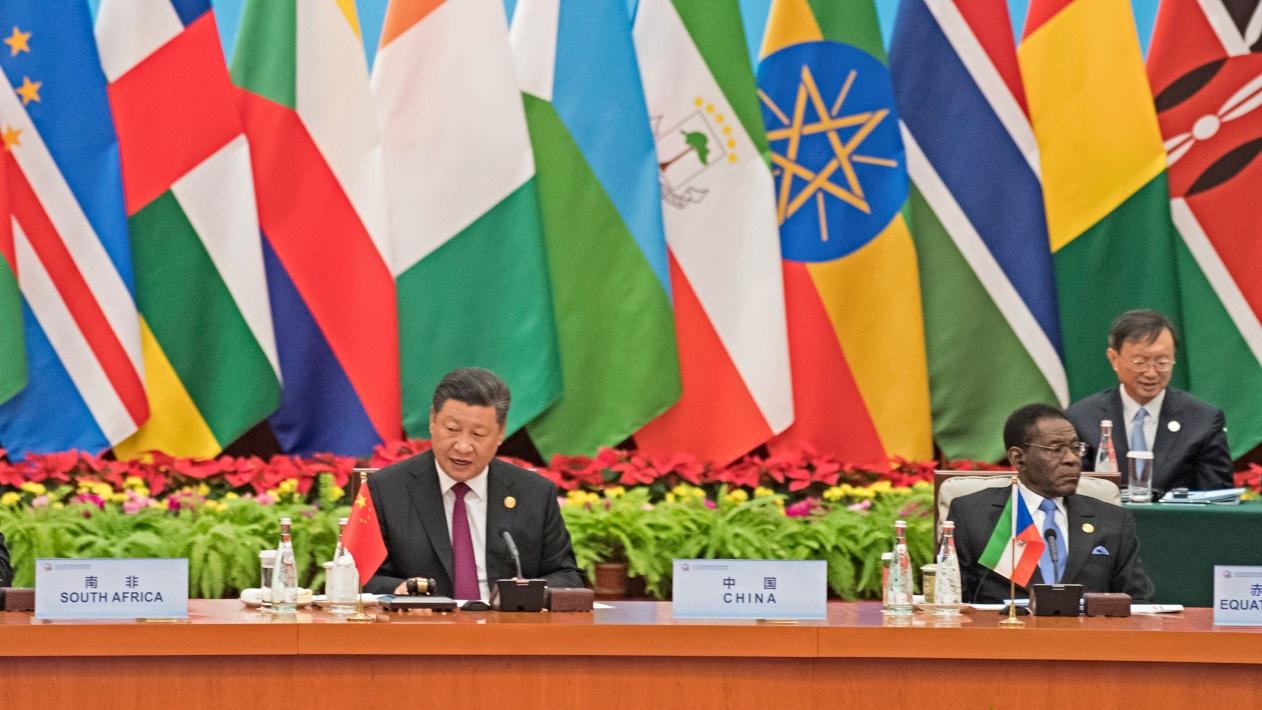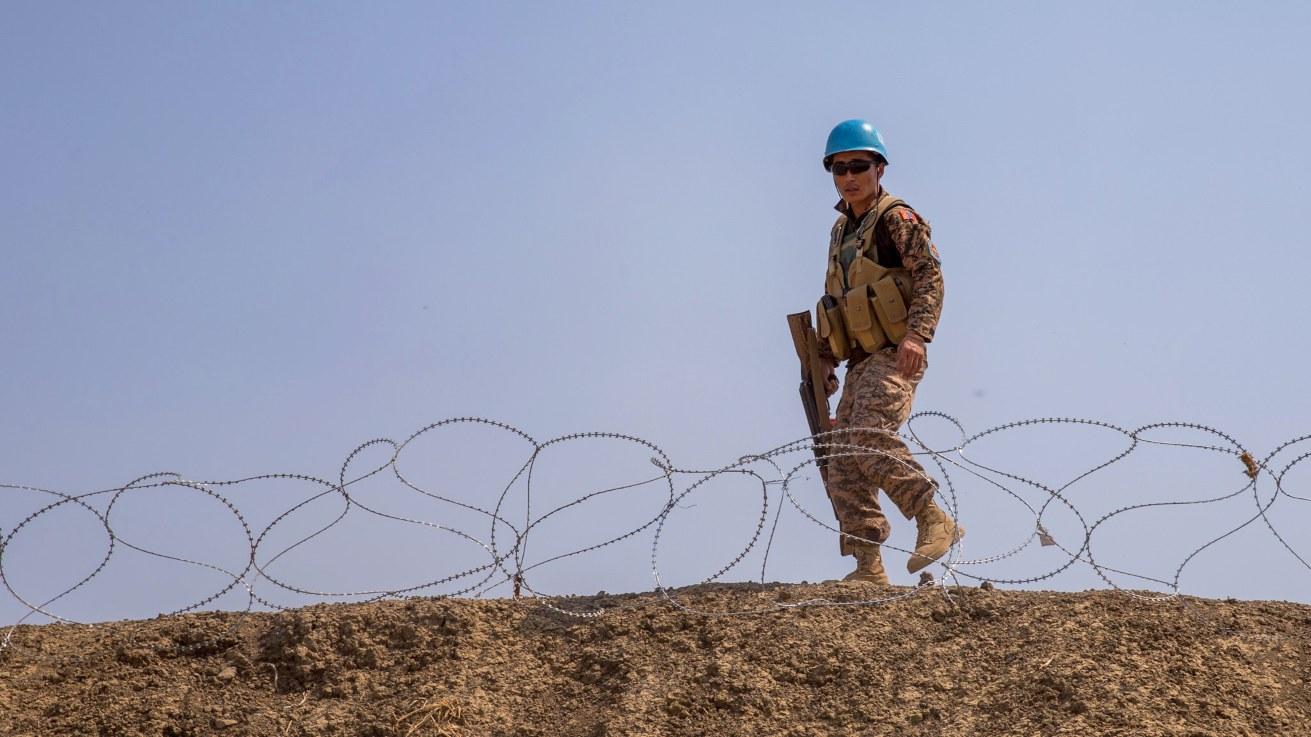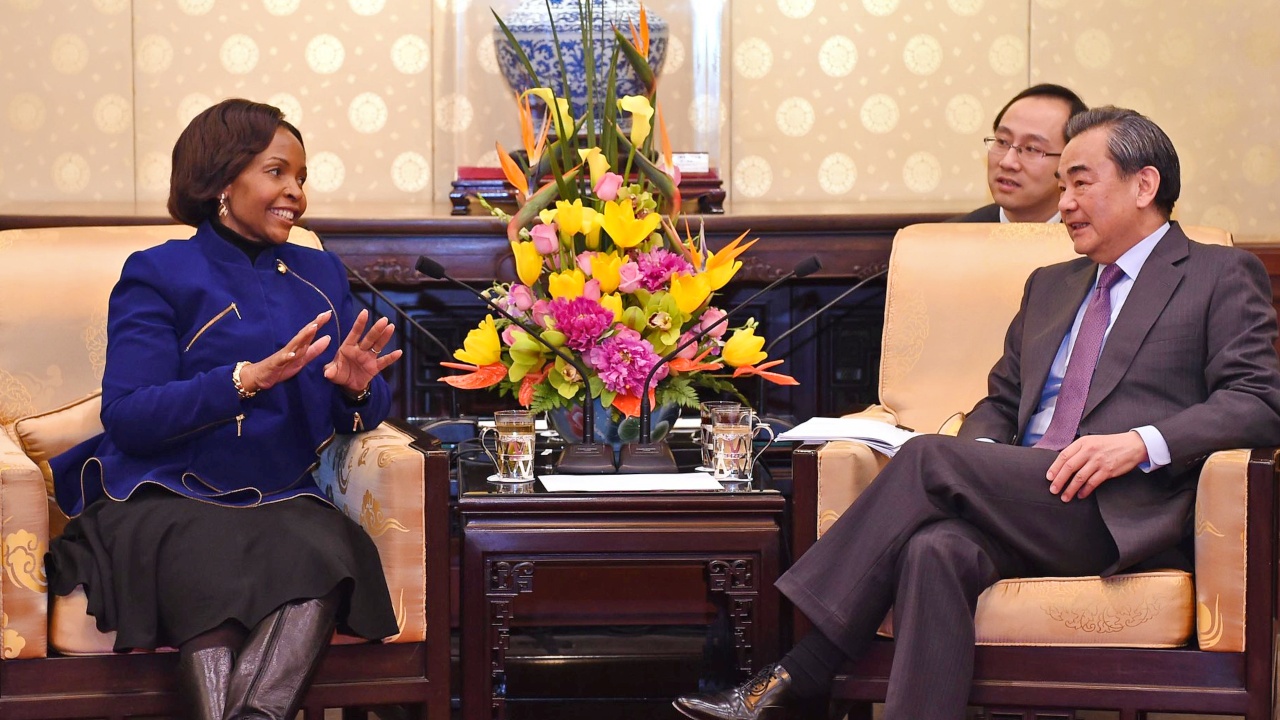The post-WWII nuclear era coincided with the spread of African decolonisation. United by opposition to French nuclear tests in the Sahara, the unique combination of decolonisation and denuclearisation impacted the trajectory of nuclear non-proliferation globally. Dr Sizwe Mpofu-Walsh examines this often-overlooked history, and the continent’s attitude of ‘obedient rebellion’ to the global nuclear order.
At a summit in Cairo on 11 April 1996, Egyptian President Hosni Mubarak grinned before a phalanx of dignitaries gathered to celebrate the birth of the long-awaited African nuclear weapon-free zone (NWFZ). Behind him shone a bright white slogan emblazoned in three different languages against an emerald background: ‘Africa Free of Nuclear Weapons’. On that day, 47 of Africa’s then 53 states signed what became affectionately called the Treaty of Pelindaba.
Since the 1950s, NWFZs have spread from Latin America to the Pacific, and from the seabed to south-east Asia. They cover over 100 countries, encompass 39% of the human population and span the entire southern hemisphere, proscribing the production or storage of nuclear weapons within state borders. African states have played a key role in this transcontinental story of multilateral nuclear non-proliferation. Yet the continent’s contribution to nuclear non-proliferation is only beginning to gain global scholarly appreciation. To appreciate this contribution, we must return to the earliest days of the African NWFZ’s conception.
Africa’s ‘obedient rebellion’ towards the global nuclear order
My research suggests that Africa’s global contributions to nuclear non-proliferation stem from an attitude of ‘obedient rebellion’ which dates to the early 1960s. In its simplest form, ‘obedient rebellion’ is an attitude of ambivalence towards the global nuclear order on the part of a nuclear actor – in this case African states. ‘Obedience’ to the global nuclear order means accepting the legitimacy of this order (legitimacy-acceptance) and seeking recognition within it (recognition-seeking). ‘Rebellion’ implies the converse.
When the first nuclear explosive device was used in 1945 at Hiroshima, only Liberia, Ethiopia and Egypt were independent African states. The nuclear era thus coincided with African decolonisation in the decades to follow. Between 1955 and 1965, 33 new African states emerged in an unprecedented wave of decolonising independence, and as this unique wave of decolonisation spread across the continent, French nuclear tests in the Sahara united the newly independent states in outrage. Those African states that had decolonised earlier, such as Ghana, Algeria and Sudan, played a special role in shaping African foreign policy.
The early 1960s, therefore, became a foundational moment in African nuclear politics, because of its unique combination of decolonisation and denuclearisation. Never had calls for both risen to such intensity simultaneously. At the same time, global efforts were underway to agree on the non-proliferation treaty and the Latin American NWFZ was born. In this milieu, African states took the fight over Africa’s denuclearisation to the United Nations General Assembly’s 15th, 16th and 17th sessions, mounting an unprecedented rhetorical assault on European ‘nuclear colonialism’. In the crucible of these times, the idea of the African NWFZ germinated. Africa’s growing opposition to nuclear imperialism was typified by Jaja Wachuku, Nigeria’s first Permanent Representative to the UN, who remarked at the General Assembly’s 16th Session:
‘We put up this sign: “Please do not touch. Take your rockets to your own homes. Test your atom bombs, in your own kitchens. Do not bring them to our continent.”’
Yet, the choice of the UN General Assembly as a venue to ventilate this frustration was itself a form of ‘obedience’. Newly decolonising African states did not decide to boycott existing institutions or pursue a path of nuclear acquisition, as South Africa later would. Rather, they sought recognition through precisely the institutions that they claimed were deaf to their cries. In this sense, African states continued to honour the legitimacy of several norms, rules and institutions of the nascent nuclear order. African states’ early stances on nuclear order can therefore be seen to conform with my definition of ‘obedient rebellion’, in which states are torn between seeking recognition within and without the existing nuclear order.
The African NWFZ epitomises the tensions that stabilise nuclear order: between sovereign equality and nuclear inequality; between local solidarities and global loyalties; and between contestation and compromise. To newly decolonising African states, the African NWFZ symbolised both postcolonial anti-nuclear solidarity and nuclear responsibility; it represented both ‘obedience’ to and ‘rebellion’ against global nuclear order. This ambivalence between ‘obedience’ and ‘rebellion’ paradoxically accommodated multiple, conflicting audiences simultaneously. The African zone’s ambiguous meanings made it viable, even though those meanings conflicted. The early conception of the African NWFZ supports this conclusion, in which African states and leaders conceptualised the zone as both a symbol of anti-imperialist policy and a chance for global nuclear citizenship within established institutions like the UN.
Photo by Dan Meyers on Unsplash.





